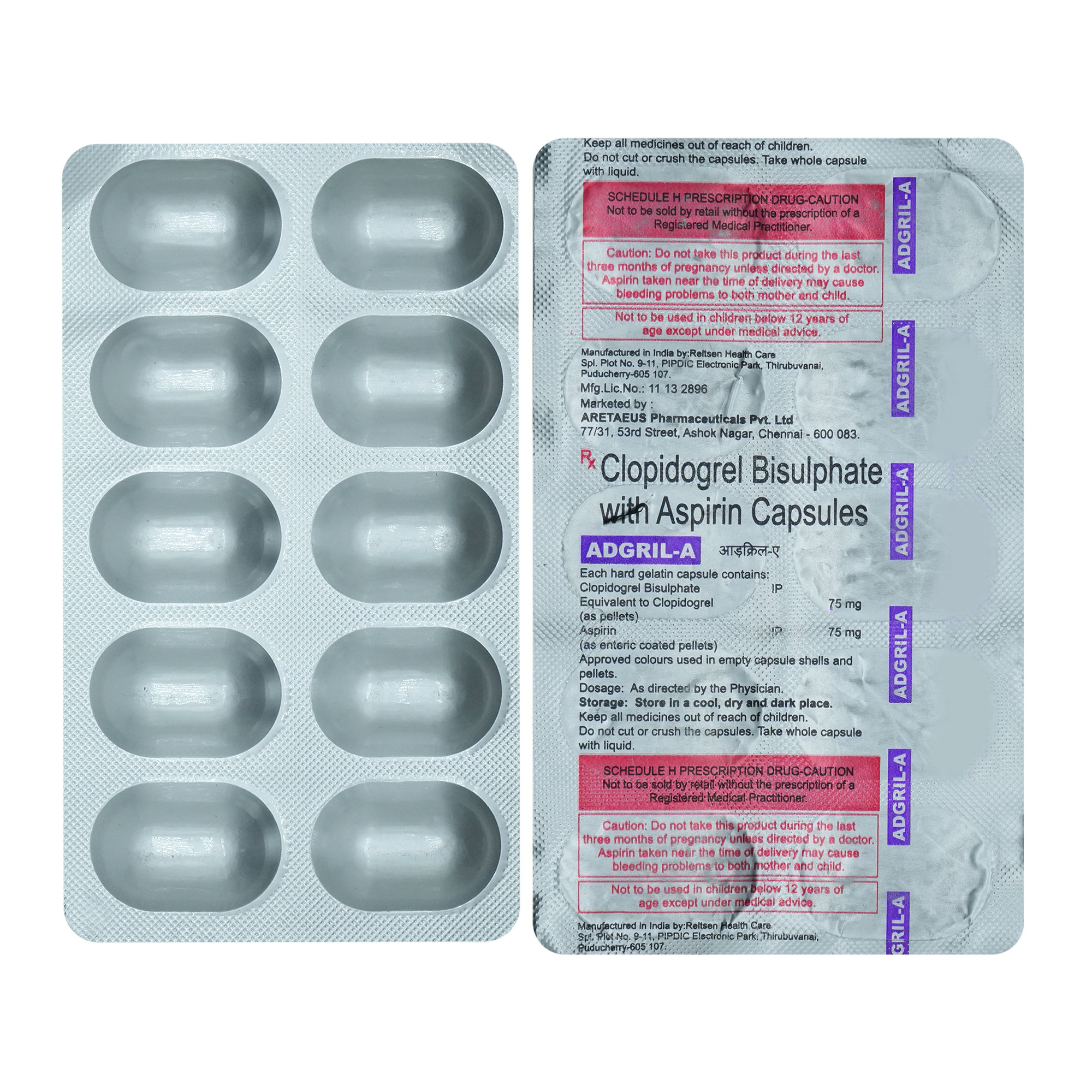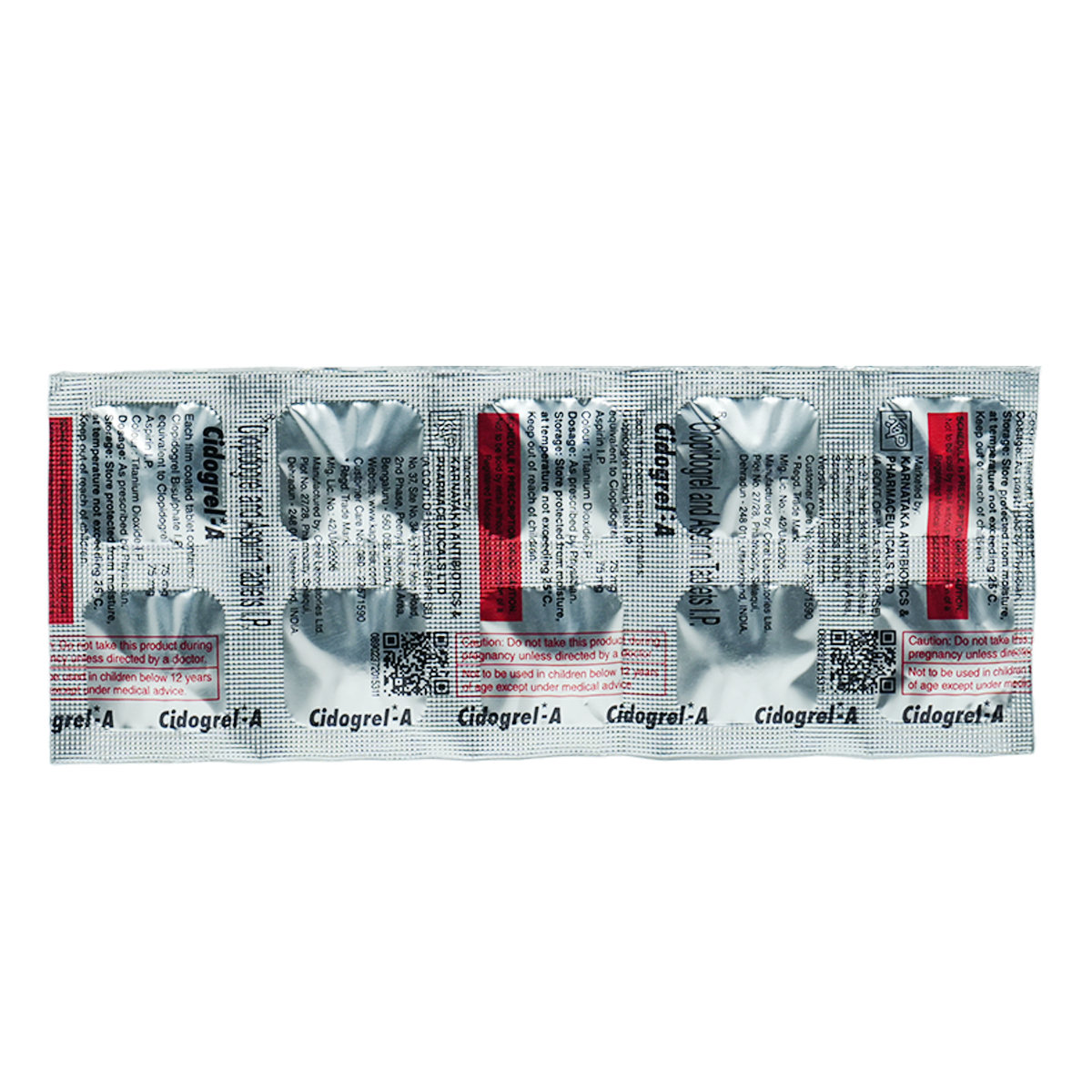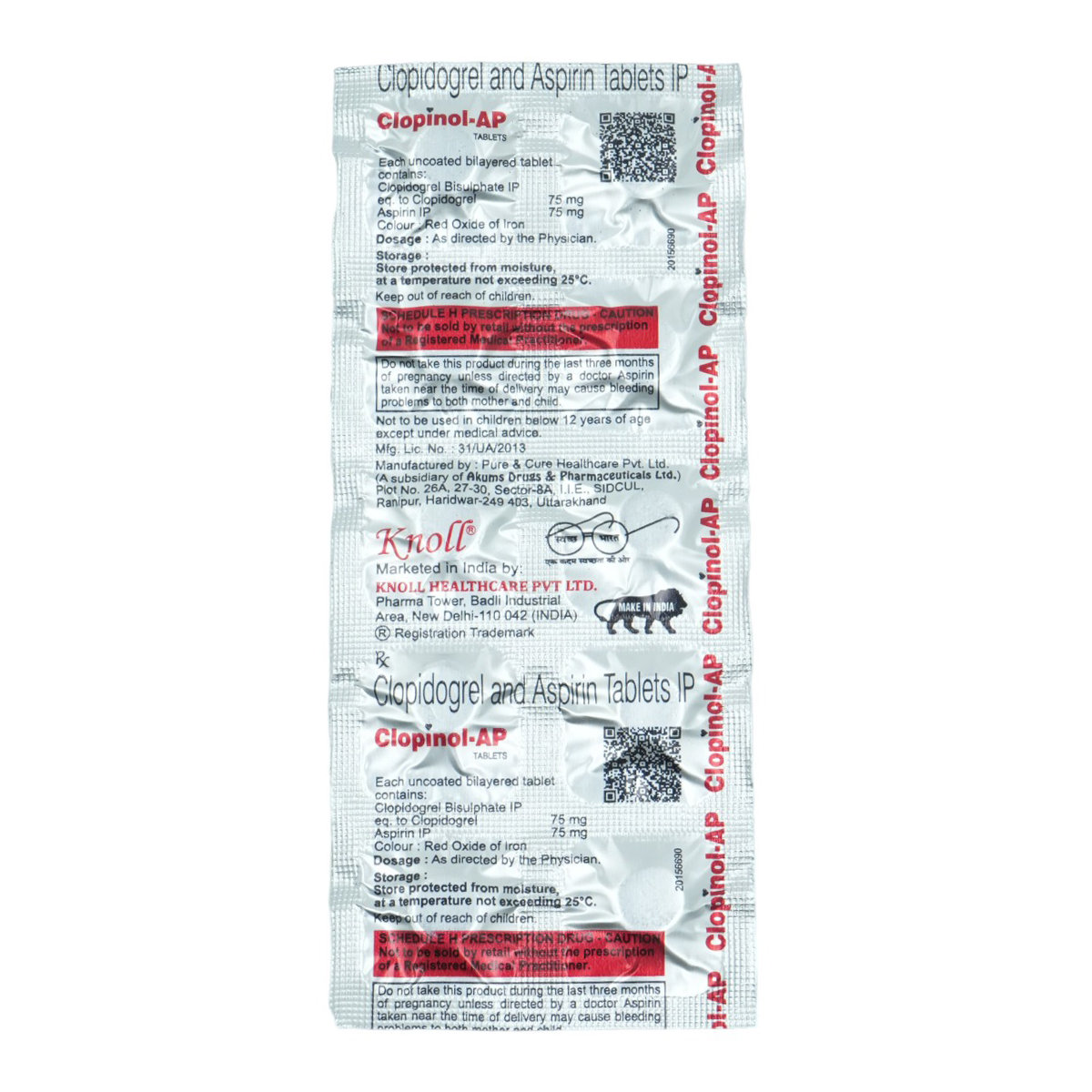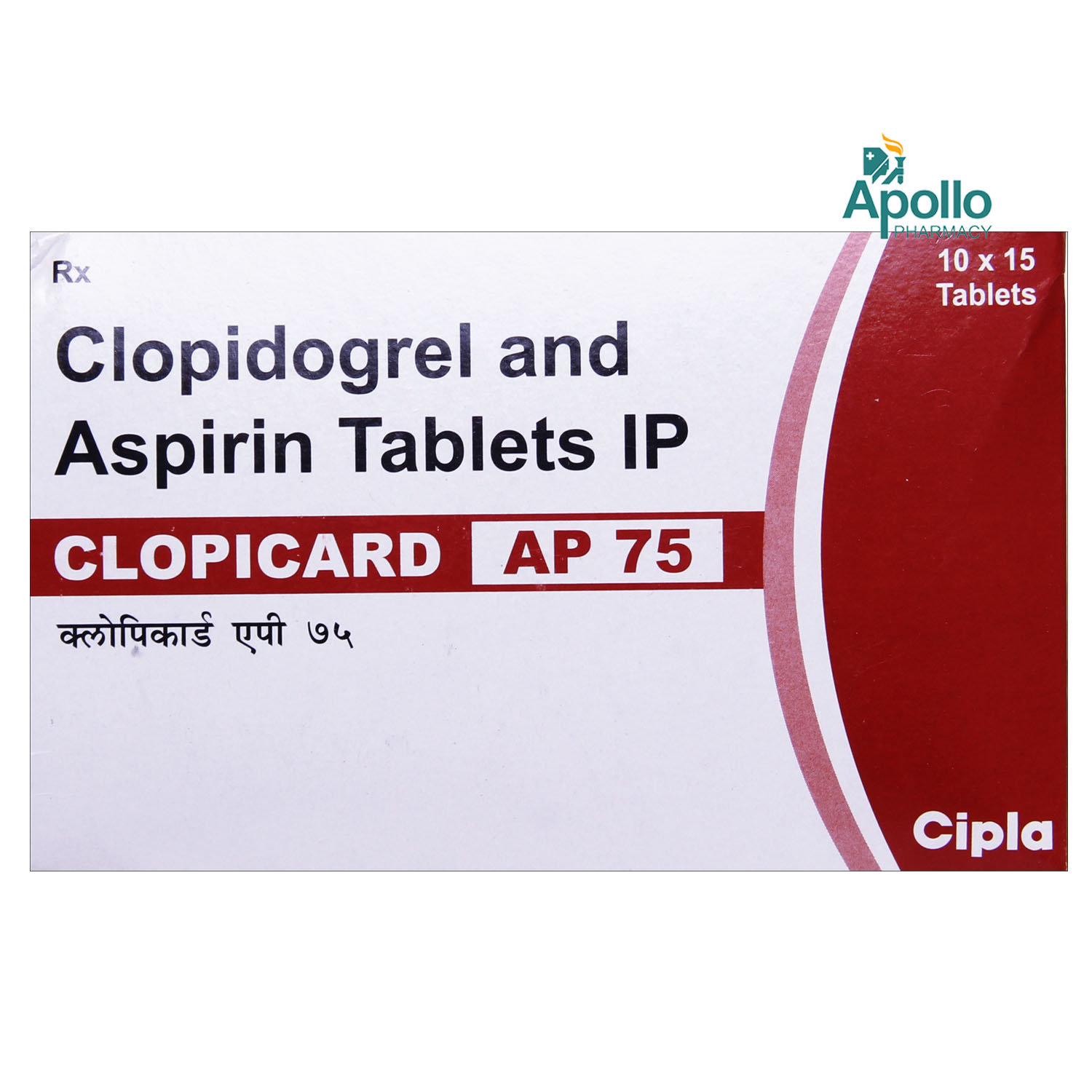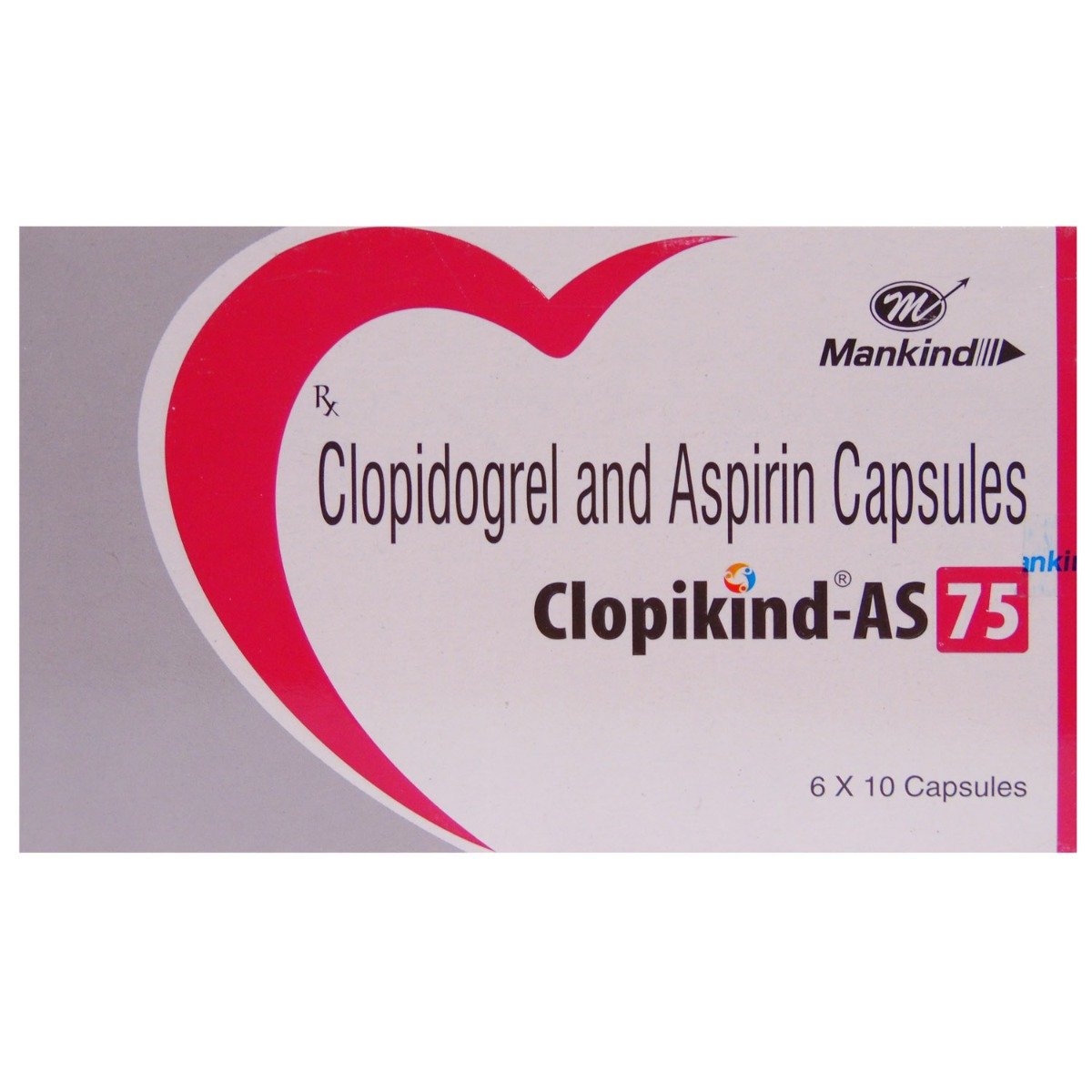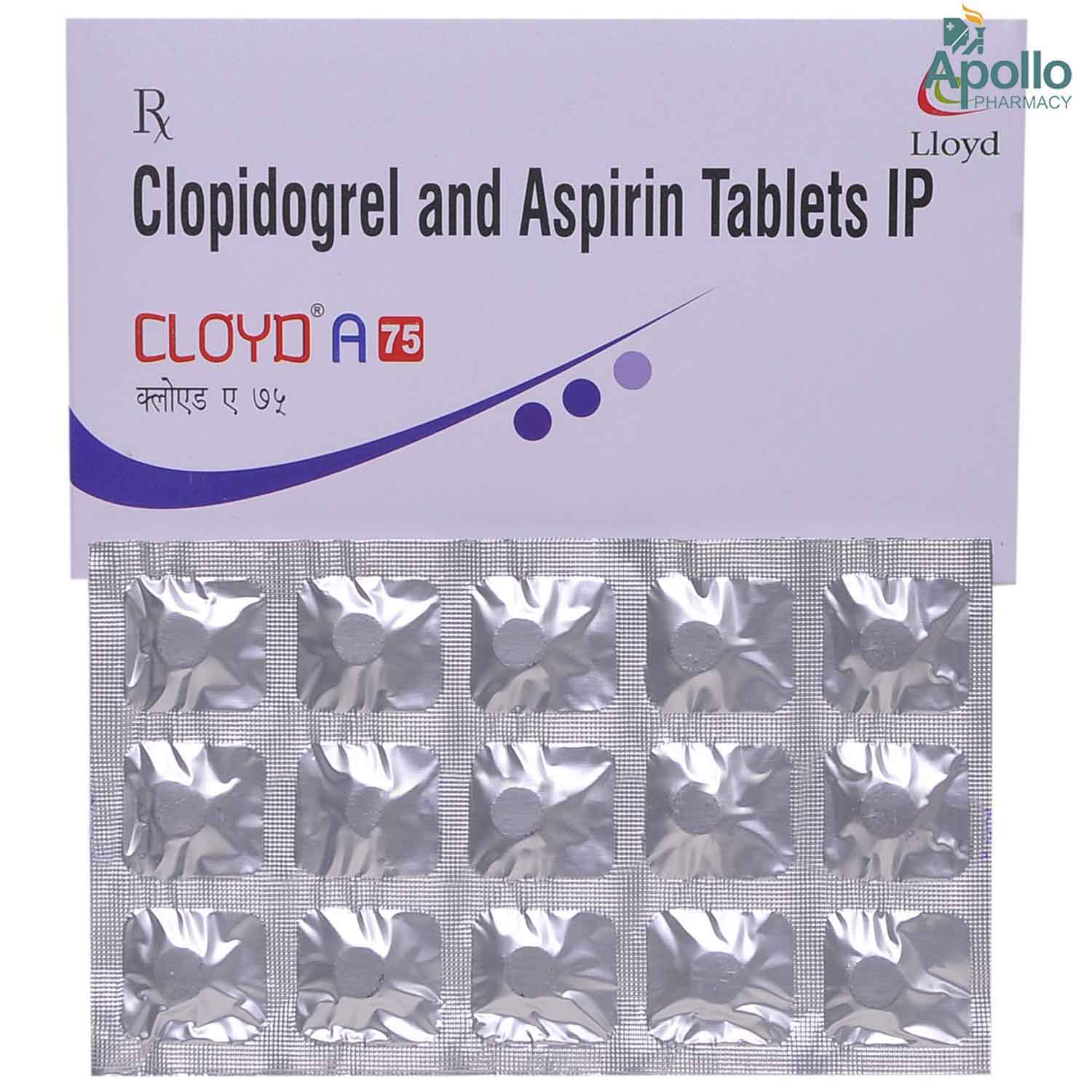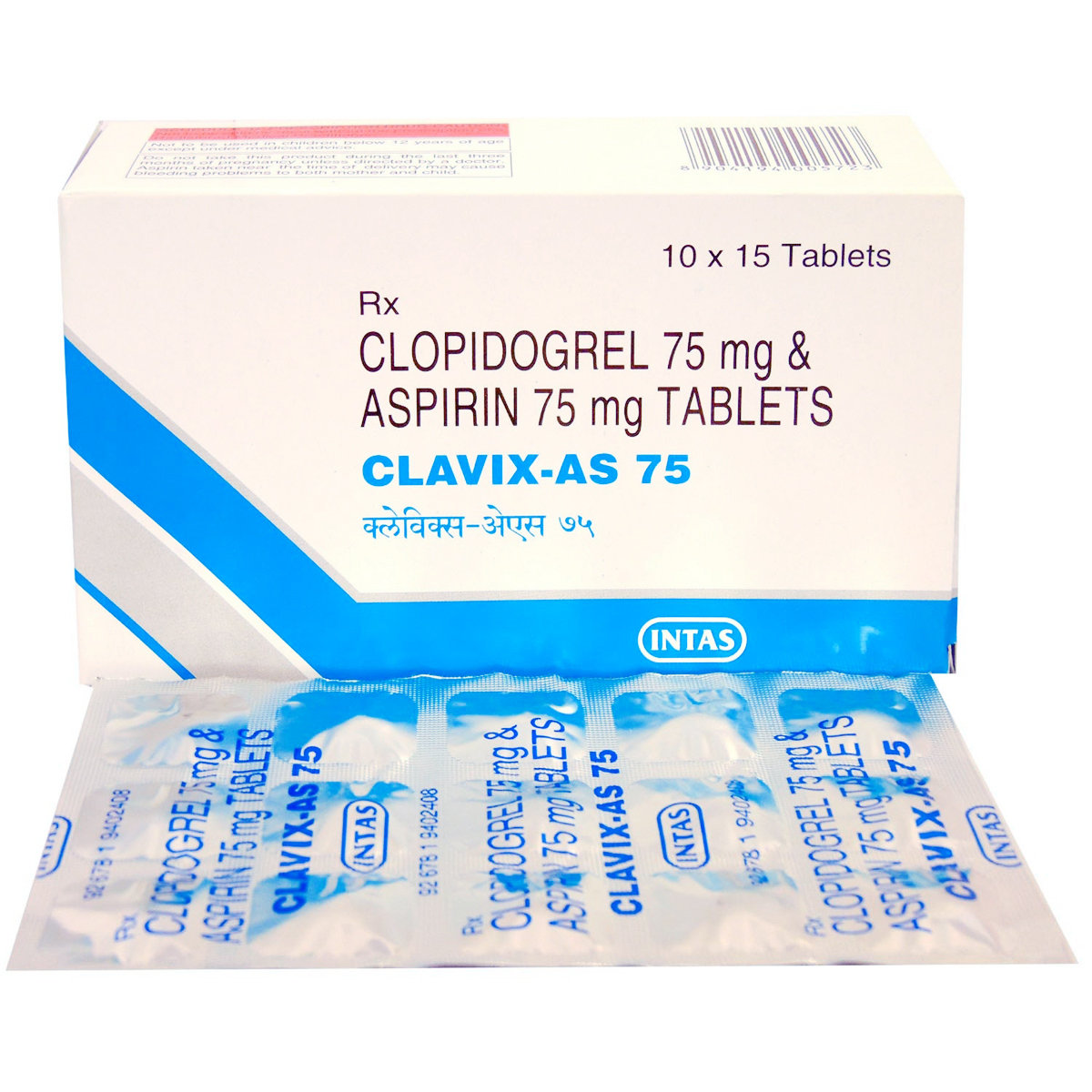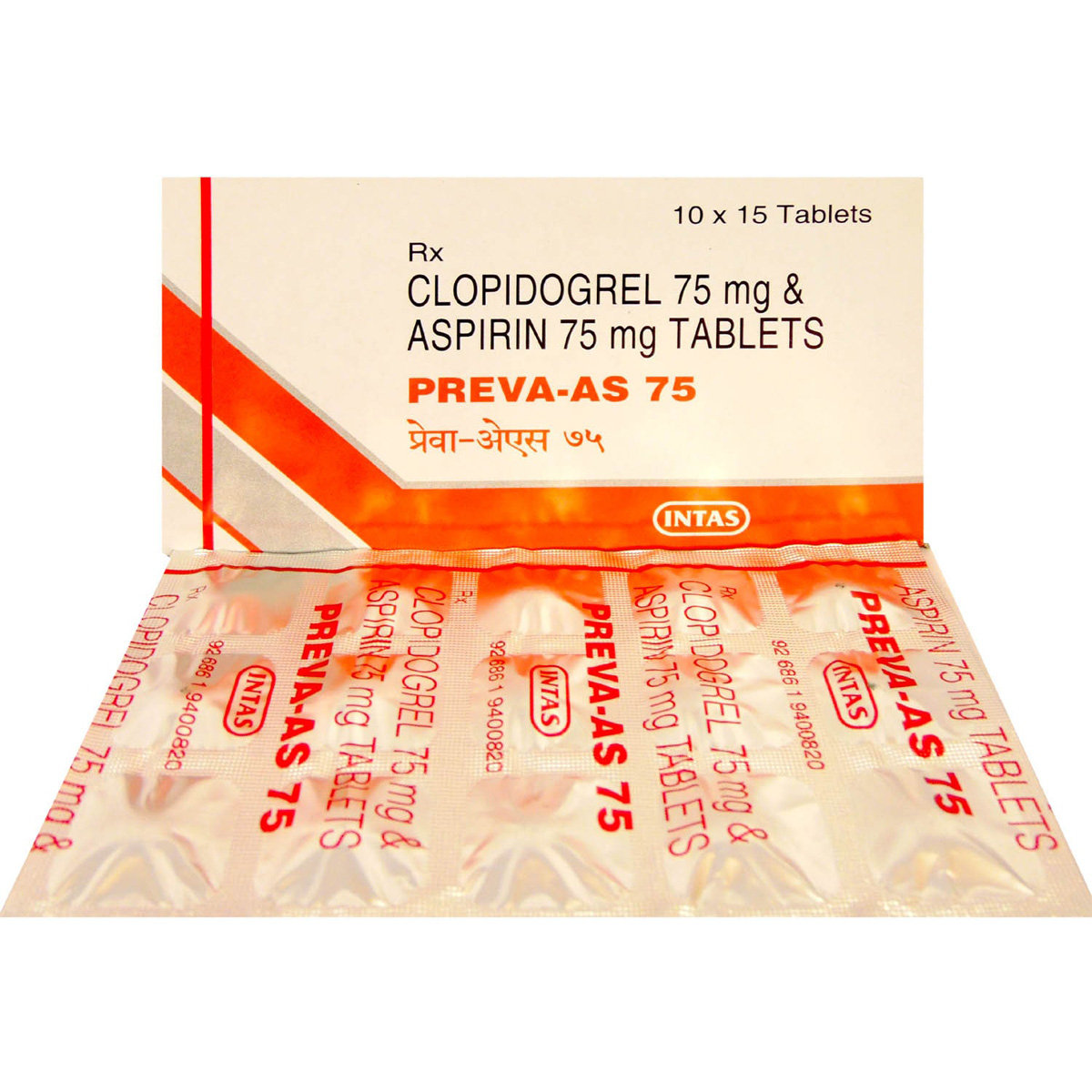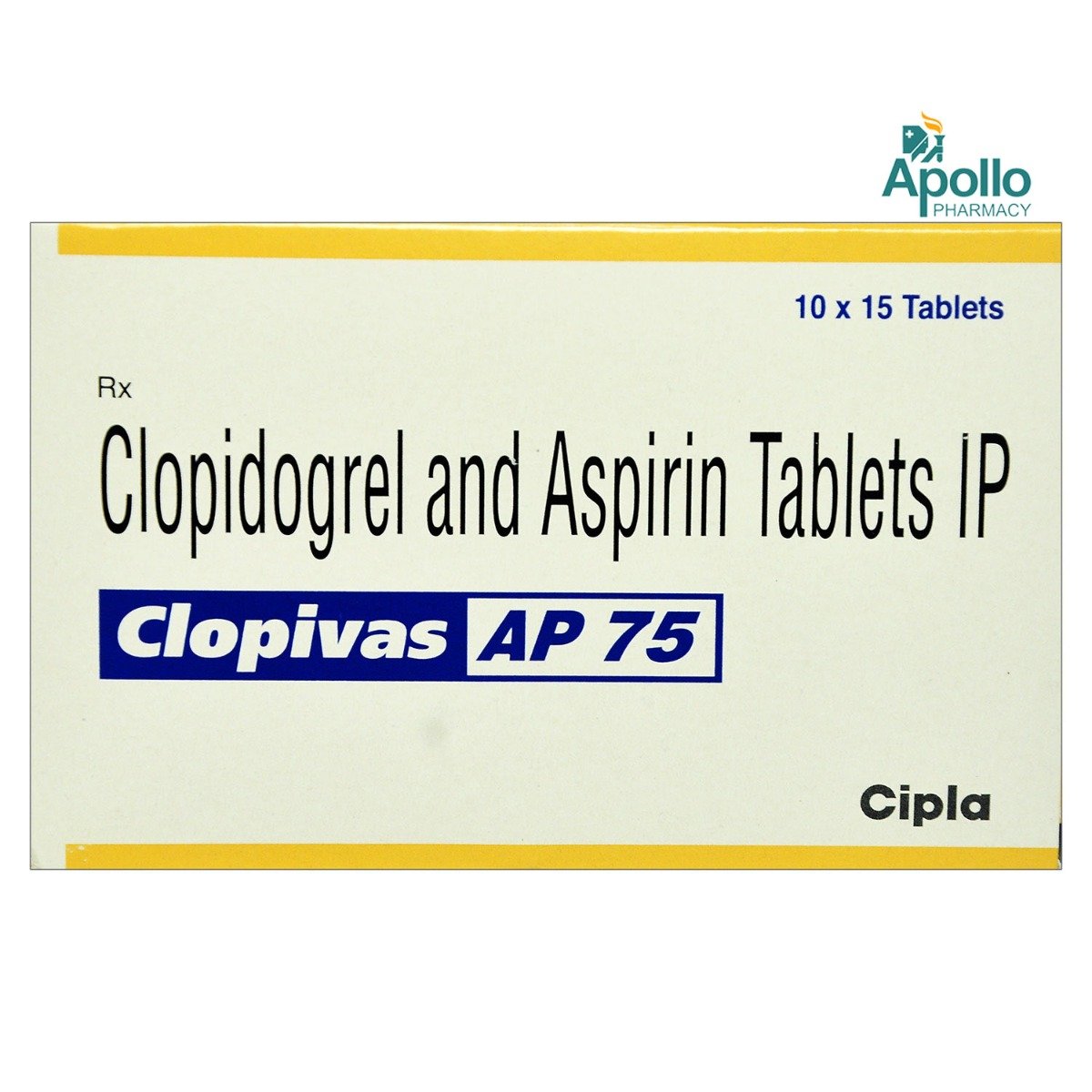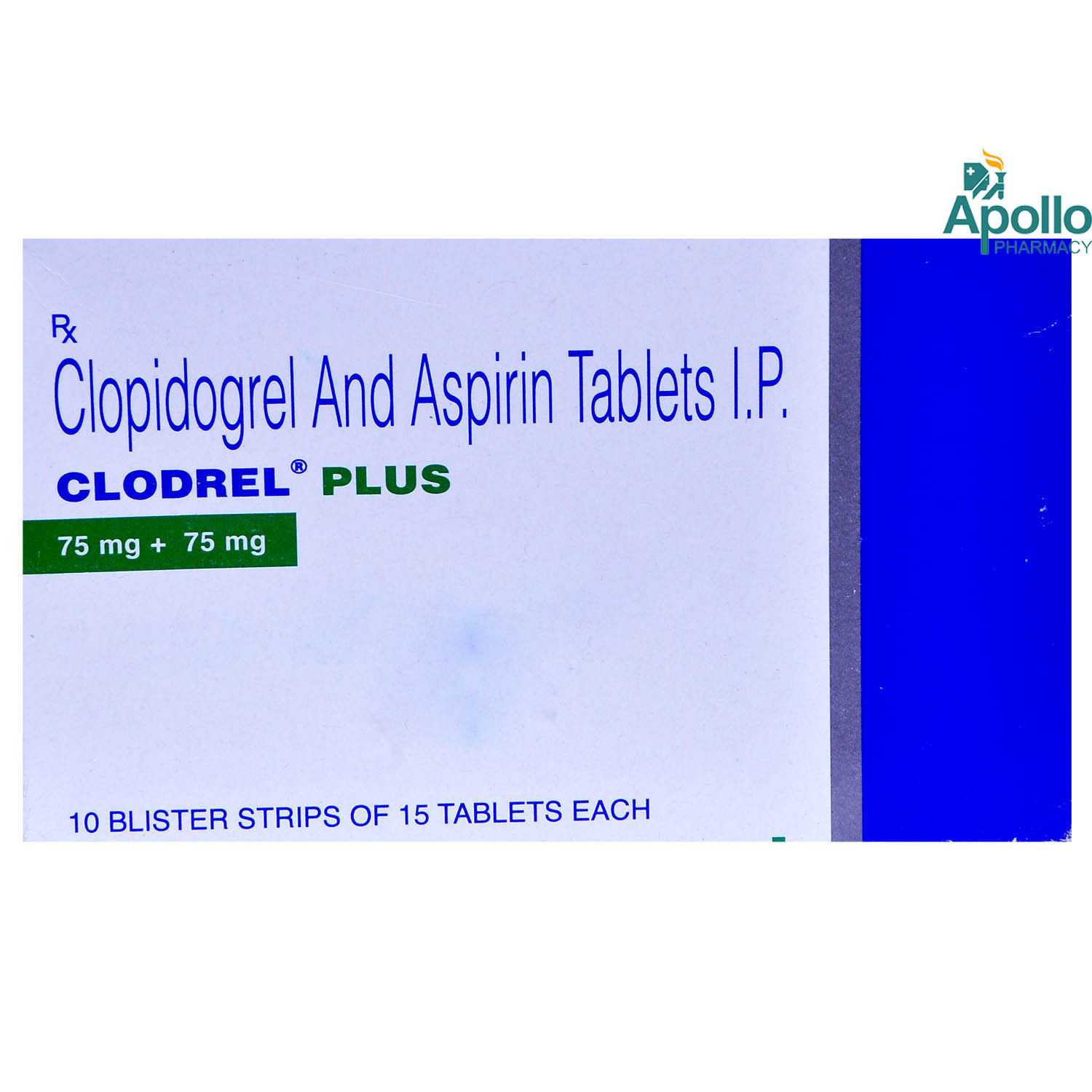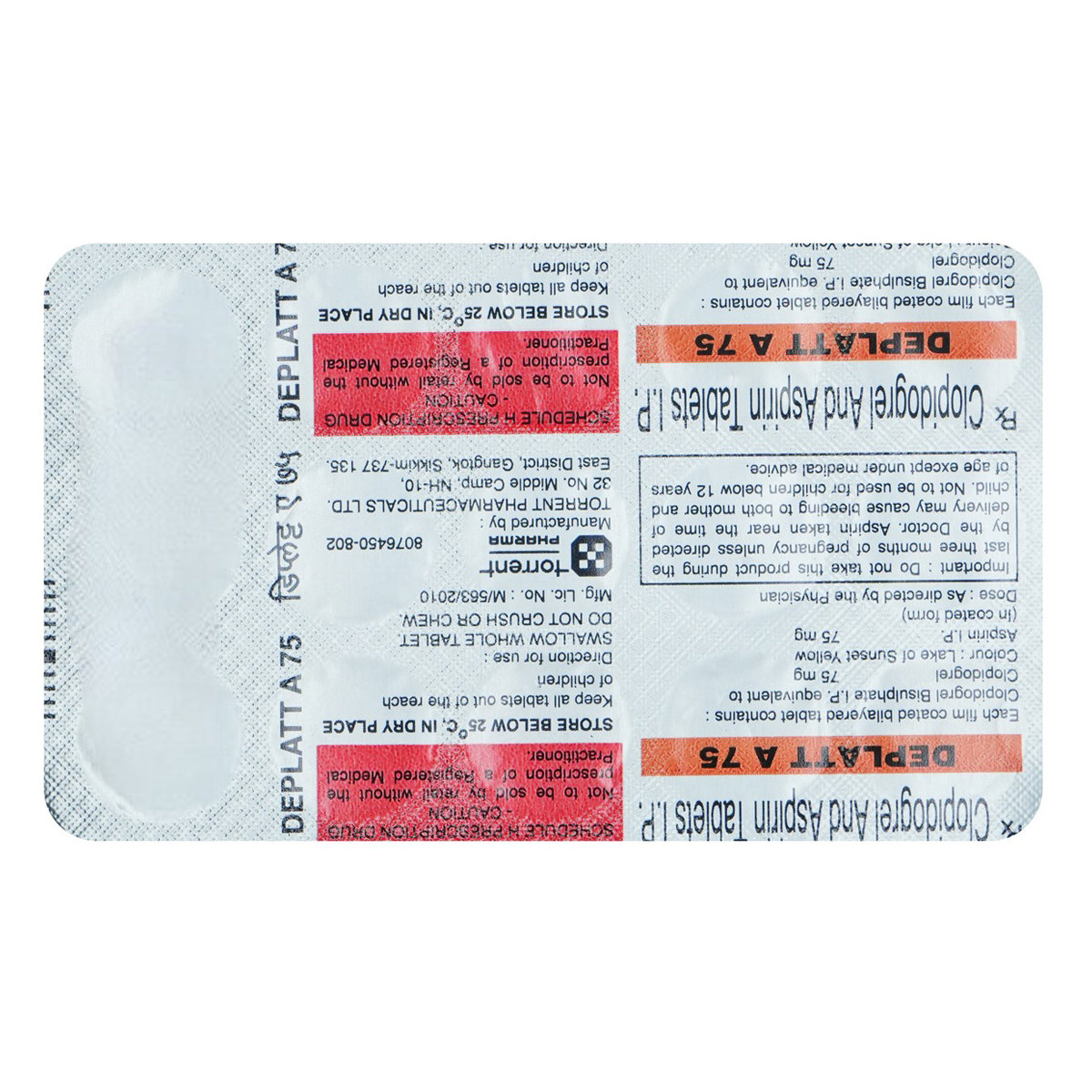Capigrel-A Tablet 10's
MRP ₹92.5
(Inclusive of all Taxes)
₹13.9 Cashback (15%)
Provide Delivery Location
Online payment accepted
 Prescription drug
Prescription drugWhats That
Composition :
Manufacturer/Marketer :
Consume Type :
Expires on or after :
Return Policy :
About Capigrel-A Tablet
Capigrel-A Tablet belongs to the class of antiplatelet drugs used for the prevention of heart attack and stroke. A heart attack occurs when a blood clot blocks the blood flow to the heart. This blockage of arteries is most often an accumulation of fat, cholesterol and other substances, which form a plaque in the arteries that feed the heart (coronary arteries). Signs of a heart attack include chest pain, upper body pain, sweating, nausea, fatigue and trouble breathing.
Capigrel-A Tablet is composed of two medicines, namely: Aspirin and Clopidogrel. These are blood thinners (anti-platelet) that prevent the formation of a clot in the blood vessels. Aspirin acts as a blood-thinning or anti-platelet agent in a low dose (about 75 mg) to prevent heart attack and stroke. Clopidogrel acts by preventing blood clots if you have severe chest pain (unstable angina or heart attack), stroke, and peripheral arterial disease (heart problem due to narrowed blood vessels). Capigrel-A Tablet helps in the free flow of blood, thereby preventing a heart attack, stroke, deep vein thrombosis (blood clot in the vein), and pulmonary embolism (blood clots in the arteries of lungs).
Your doctor will advise you on how often you take your tablets based on your medical condition. The common side effects of Capigrel-A Tablet include abdominal pain, indigestion, diarrhoea, easy bruising, and nosebleeds. Capigrel-A Tablet is known to cause dizziness and blurry vision, so driving should be avoided. Most of these side effects of Capigrel-A Tablet do not require medical attention and gradually resolve over time. However, if the side effects are persistent, reach out to your doctor.
Try not to stop taking this medicine of your own. Stopping Capigrel-A Tablet may worsen your condition and increase the risk of a future heart attack. Let your doctor know if are sensitive to clopidogrel or aspirin, have kidney/liver diseases, bleeding issues (like peptic ulcer, brain haemorrhage), pregnant or planning to become pregnant or breastfeeding. The patient should inform the doctor that they are taking Capigrel-A Tablet before any surgery is scheduled or any new medicine is taken.
Uses of Capigrel-A Tablet
Directions for Use
Key Benefits
Capigrel-A Tablet is composed of Aspirin and Clopidogrel, which act as blood thinners (anti-platelet) and prevent the formation of a clot in the blood vessels. Aspirin acts as a blood-thinning or anti-platelet agent in a low dose (about 75 mg) to prevent heart attack and stroke. Clopidogrel acts by preventing blood clots if you have severe chest pain (unstable angina or heart attack), stroke, and peripheral arterial disease (heart problem due to narrowed blood vessels). Capigrel-A Tablet helps in the free flow of blood, thereby preventing heart attack, stroke, deep vein thrombosis (blood clot in the vein), and pulmonary embolism (blood clots in the arteries of lungs).
Storage
- If you experience nosebleeds or unusual bleeding after taking medication, seek medical attention right away and schedule an appointment to discuss your symptoms with your doctor.
- Your doctor may adjust your treatment plan by changing the dosage, switching to a different medication, or stopping the medication.
- If your doctor advises, take steps to manage bleeding and promote healing, such as applying pressure, using saline nasal sprays, or applying a cold compress, using humidifiers, avoiding blowing or picking your nose, and applying petroleum jelly to the nostrils.
- Schedule follow-up appointments with your doctor to monitor progress, adjust treatment plans, and prevent future episodes.
- Inform Your Doctor: Notify your doctor immediately about your diarrhoea symptoms. This allows them to adjust your medication or provide guidance on managing side effects.
- Stay Hydrated: Drink plenty of fluids to replace lost water and electrolytes. Choose water, clear broth, and electrolyte-rich drinks. Avoid carbonated or caffeinated beverages to effectively rehydrate your body.
- Follow a Bland Diet: Eat easy-to-digest foods to help firm up your stool and settle your stomach. Try incorporating bananas, rice, applesauce, toast, plain crackers, and boiled vegetables into your diet.
- Avoid Trigger Foods: Steer clear of foods that can worsen diarrhoea, such as spicy, fatty, or greasy foods, high-fibre foods, and dairy products (especially if you're lactose intolerant).
- Practice Good Hygiene: Maintain good hygiene to prevent the spread of infection. To stay healthy, wash your hands frequently, clean and disinfect surfaces regularly, and avoid exchanging personal belongings with others.
- Take Anti-Diarrheal Medications: If your doctor advises, anti-diarrheal medications such as loperamide might help manage diarrhoea symptoms. Always follow your doctor's directions.
- Keep track of your diarrhoea symptoms. If they don't get better or worse or are accompanied by severe stomach pain, blood, or dehydration signs (like extreme thirst or dark urine), seek medical help.
- Drink water or other clear fluids.
- To prevent worsening of pain, limit intake of tea, coffee, or alcohol.
- Include bland foods like rice, toast, crackers, and rice in your diet.
- Avoid lying down immediately after eating as it may cause indigestion or heartburn.
- Avoid acidic and spicy food as it may cause indigestion.
- Take medications with food (if recommended): It can help prevent stomach distress and indigestion.
- Eat smaller, more frequent meals: Divide daily food intake into smaller, more frequent meals to ease digestion.
- Avoid trigger foods: Identify and avoid foods that trigger indigestion, such as spicy, fatty, or acidic foods.
- Stay upright after eating: Sit or stand upright for at least 1-2 hours after eating to prevent stomach acid from flowing into the oesophagus.
- Avoid carbonated drinks: Avoid drinking carbonated beverages, such as soda or beer, which can worsen indigestion.
- Manage stress: To alleviate indigestion, engage in stress-reducing activities like deep breathing exercises or meditation.
- Consult a doctor if needed: If indigestion worsens or persists, consult a healthcare professional to adjust the medication regimen or explore alternative treatments.
Drug Warnings
You should avoid taking Capigrel-A Tablet if you are allergic to Capigrel-A Tablet . Let your doctor know if you have a medical condition that is causing bleeding such as a haemophilia, stomach ulcer or bleeding within your head or bowel. Caution is required before giving Capigrel-A Tablet to the liver or kidney problems patients. People affected with respiratory problems like asthma, rhinitis or nasal polyps should consult a doctor before intake of Capigrel-A Tablet . Capigrel-A Tablet is not recommended for the breastfeeding mother as it passes into the breast milk. The safety and effectiveness of Capigrel-A Tablet in children less than 12 years of age have not been established.
Drug-Drug Interactions
Drug-Drug Interactions
Login/Sign Up
Co-administration of Ketorolac and Capigrel-A Tablet may increase the risk of side effects.
How to manage the interaction:
Taking Ketorolac with Capigrel-A Tablet is not recommended but can be taken together if prescribed by a doctor. However, consult a doctor if you experience unusual bleeding or bruising, dizziness, tarry stools, coughing up or vomiting fresh or dried blood, severe headache and weakness. Do not stop using any medications without talking to a doctor.
Combining Ketorolac tromethamine with Capigrel-A Tablet can increase the risk of adverse effects.
How to manage the interaction:
Taking Capigrel-A Tablet with Ketorolac tromethamine is not recommended, as it results in an interaction, it can be taken if advised by a doctor. Do not stop using any medications without a doctor’s advice.
Taking Capigrel-A Tablet together with mifepristone increases the risk of vaginal bleeding in women.
How to manage the interaction:
Although taking Capigrel-A Tablet with mifepristone is not recommended, that would certainly result in interaction, it can be taken if a doctor prescribes it. If you experience prolonged and heavy bleeding, consult a doctor immediately. Do not discontinue any medication without consulting a doctor.
When Selexipag and Capigrel-A Tablet are taken together, the body's ability to break down Selexipag may be reduced.
How to manage the interaction:
Taking Capigrel-A Tablet with Selexipag is not recommended, please consult your doctor before taking it. They can be taken if prescribed by your doctor.
The use of panobinostat with Capigrel-A Tablet may increase the risk of bleeding.
How to manage the interaction:
Taking panobinostat with Capigrel-A Tablet together can possibly result in an interaction, but it can be taken if your doctor has advised it. However, if you experience unusual bleeding or bruising, dizziness, lightheadedness, red or black, tarry stools, coughing up or vomiting fresh or dried blood that looks like coffee grounds, severe headache, and weakness, consult the doctor. Do not stop using any medications without a doctor's advice.
Using warfarin together with Dicoumarol may cause you to bleed more easily.
How to manage the interaction:
Taking Capigrel-A Tablet with Dicoumarol together can result in an interaction, but it can be taken if a doctor has advised it. If you notice any bleeding, it's important to contact a doctor right away. They will be able to help you and provide the necessary care. Do not discontinue any medications without consulting a doctor.
Coadministration of Capigrel-A Tablet and Teriflunomide can enhance the risk of liver problems.
How to manage the interaction:
Although co-administration of Capigrel-A Tablet with teriflunomide can lead to an interaction, it can be taken if recommended by a doctor. If you experience fever, chills, joint pain or swelling, unusual bleeding or bruising, skin rash, itching, loss of appetite, fatigue, nausea, vomiting, abdominal pain, dark colored urine, light colored stools, and/or yellowing of the skin or eyes, contact a doctor right away. Do not discontinue any medications without consulting a doctor.
Using Capigrel-A Tablet together with deflazacort may increase the risk of gastric and intestinal ulcers, bleeding and perforation.
How to manage the interaction:
Co-administration of Capigrel-A Tablet with Deflazacort can result in an interaction, but it can be taken if a doctor has advised it. If you have any symptoms unusual bleeding or bruising, dizziness, lightheadedness, red or black, tarry stools, coughing up or vomiting fresh or dried blood that looks like coffee grounds, severe headache, and weakness, consult a doctor. Do not stop using any medications without consulting a doctor.
Using Capigrel-A Tablet together with tirofiban can cause you to bleed more easily.
How to manage the interaction:
Co-administration of Capigrel-A Tablet with Tirofiban can result in an interaction, but it can be taken if a doctor has advised it. If you notice any of these signs, it's important to contact a doctor right away: bleeding, bruising, throwing up, headache, feeling dizzy, weakness, or seeing blood in your urine or stools. Do not stop using any medications without talking to a doctor.
Co-administration of Capigrel-A Tablet and Rivaroxaban can increase the risk of unusual bleeding.
How to manage the interaction:
Although Co-administration of Capigrel-A Tablet and Rivaroxaban can lead to an interaction, they can be taken together if advised by a doctor. However, if you experience unusual bleeding or bruising, dizziness, lightheadedness, red or black, tarry stools, coughing up or vomiting fresh or dried blood that looks like coffee grounds, severe headache, and weakness, consult the doctor. Do not stop using any medications without a doctor's advice.
Drug-Food Interactions
Drug-Food Interactions
Login/Sign Up
Diet & Lifestyle Advise
- Take the medication as directed by the doctor and at regular intervals. Do not use other over-the-counter medications, herbal or vitamin supplements without informing your pharmacist or doctor when you take Capigrel-A Tablet .
- Keep your cholesterol and triglyceride levels under control.
- Eat at regular intervals, and maintain a healthy diet that includes fresh fruits, and vegetables.
- Limit alcohol intake since it raises blood pressure and increases the risk of heart diseases.
- Keep a check on your weight and exercise regularly to keep your heart healthy.
- Your doctor also guides you on how to notice and manage the early symptoms of detecting heart diseases.
Side Effects of Capigrel-A Tablet
- Abdominal pain
- Indigestion
- Diarrhoea
- Easy bruising
- Nosebleeds
- Increased bleeding tendency
Habit Forming
Therapeutic Class
All Substitutes & Brand Comparisons
RX
Carpigrel-A Tablet 15's
Shrrishti Health Care Products Pvt Ltd
₹43.5
(₹2.55 per unit)
69% CHEAPERRX
Adgril A Tablet 10's
Aretaeus Pharmaceuticals Pvt Ltd
₹31.5
(₹2.84 per unit)
65% CHEAPERRX
CIDOGREL A TABLET
Karnataka Soaps & Detergents Ltd
₹37
(₹3.33 per unit)
60% CHEAPER
Author Details
We provide you with authentic, trustworthy and relevant information
Drug-Diseases Interactions
Drug-Diseases Interactions
Login/Sign Up
FAQs
Capigrel-A Tablet consists Aspirin and Clopidogrel. Aspirin acts as a blood-thinning or anti-platelet agent in a low dose to prevent heart attack and stroke. Clopidogrel acts by preventing blood clots if you have severe chest pain (unstable angina or heart attack), stroke, and peripheral arterial disease (heart problem due to narrowed blood vessels).
Please consult your doctor if Capigrel-A Tablet needs to be discontinued before undergoing surgery. The doctor might ask you to stop taking Capigrel-A Tablet a few days before surgery since it can cause an increased risk of bleeding during surgery.
Capigrel-A Tablet consists of Aspirin and Clopidogrel. These are blood-thinning agents and can increase the risk of bleeding. It is advised to be cautious during your daily activities like shaving, cutting fingernails or using sharp objects. Also, please consult your doctor beforehand if you undergo any surgery.
Capigrel-A Tablet is generally safe to take for a long time. It works best if you take it for many months or even years. If you're at risk of getting a stomach ulcer, your doctor may prescribe a medicine to treat ulcer, while you're taking Capigrel-A Tablet .
Drug-Drug Interactions Checker List
- WARFARIN
- HEPARIN
- FLUOXETINE
- LITHIUM
- GLIBENCLAMIDE
- REPAGLINIDE
- METHOTREXATE
- VALPROATE
- PHENYTOIN
- IBUPROFEN
- OMEPRAZOLE
- FLUCONAZOLE
- RITONAVIR
- COBICISTAT
- PROBENECID
Special Advise
Let your doctor know that you are using Capigrel-A Tablet if you have a scheduled surgery since this medicine may increase the risk of bleeding.
Disease/Condition Glossary
A blood clot is a clump or aggregation of blood that changes from a liquid to a gel-like state. Clotting is a natural process that prevents you from losing too much blood in an accident, trauma, surgery or cut. When a clot forms inside the veins, it won’t always dissolve on its own and can become even life-threatening situation.
Stroke: When our brain does not get sufficient oxygen and blood supply, it starts dying within a few minutes leading to a heart attack or stroke.
Heart attack: It occurs when a blood clot blocks the blood flow to the heart. This blockage of arteries is most often an accumulation of fat, cholesterol and other substances, which form a plaque in the arteries that feed the heart (coronary arteries). During a heart attack (myocardial infarction), the blood supply which nourishes the heart with oxygen is cut off. This causes the heart muscle to die. Signs of a heart attack include chest pain, upper body pain, sweating, nausea, fatigue and trouble breathing.

Have a query?
Alcohol
Safe if prescribed
Avoid consuming alcohol since it may worsen the side effects like dizziness and increased blood pressure.
Pregnancy
Consult your doctor
Capigrel-A Tablet is not recommended to use during pregnancy since it may affect the foetus. Please consult your doctor if you are planning to become pregnant or already pregnant before starting Capigrel-A Tablet .
Breast Feeding
Consult your doctor
There is limited data on how Capigrel-A Tablet affects breastfeeding. Please consult your doctor before starting Capigrel-A Tablet .
Driving
Safe if prescribed
Do not drive or operate machinery if you experience dizziness or drowsiness while using Capigrel-A Tablet . Capigrel-A Tablet can also sometimes cause blurry vision, hence avoid driving in such situations. Seek medical attention if the symptoms persist longer.
Liver
Consult your doctor
Let your doctor know if you have any history of liver diseases or hepatic impairment. Your doctor will weigh the benefits and potential risks before prescribing Capigrel-A Tablet .
Kidney
Consult your doctor
Let your doctor know if you have any history of kidney diseases. Your doctor will weigh the benefits and potential risks before prescribing Capigrel-A Tablet .
Children
Safe if prescribed
Capigrel-A Tablet is not recommended for children below the age of 16 years. The safety and efficacy of Capigrel-A Tablet have not been established in children.





